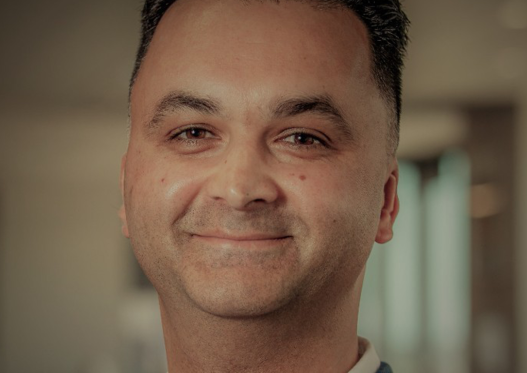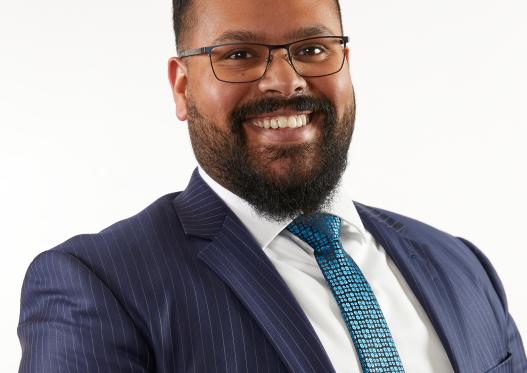Practicality, flexibility and being able to show pride in your profession are the three biggest benefits of the new qualifications FINSIA is delivering to Australians, according to Tracy Vegro.
The CEO of the Chartered Institute for Securities and Investment spoke about the benefits of FINSIA’s Professional Refresher Package - being delivered to Australians as part of a partnership between the two membership bodies.
Ms Vegro, who was made an OBE for services to diversity and business after a career spent largely in the United Kingdom’s Civil Service and City regulators, places particular emphasis on showcasing skills to heighten trust with consumers and clients.
Having witnessed issues that left British banking with a tarnished reputation following taxpayer bailouts during the GFC and the subsequent Payment Protection Insurance scandal, she is alive to the way reputations can be damaged instantly and take a long time to recover.
With COVID upending the global economy and the whole way we work, she is also keen to make sure financial services professionals stay on top of the challenges facing the sector.
“First of all, there is the sheer practicality of the courses,” says Ms Vegro, who also sits on the Board of Financial Services Skills Commission, which was set up as part of a UK Government commitment to address major issues affecting skills in financial services.
“Everyone is extremely busy in financial services, and it makes sense to constantly learn with small skillset updates.
“The other aspect is that shorter, micro courses allow for the content itself to be updated quickly so it is more focused, relevant and timely.
“While we know there’s always a lag between new regulations and policies and the training needed to operate under these regimes, these shorter courses are more flexible when it comes to updates around what skills they provide.
“A three-year degree doesn’t allow for that flexibility.
“In one of my past roles I interacted with those in the legal profession, whose outlook was very different from this.
“They would spend years training and specialise in one particular field.
“But I don’t think that’s as applicable to financial services where there is this need to stay current and responsive to new regulatory requirements and customer needs.
“Thirdly, I would also say that it sends an important message about the individual’s professionalism.
“Highlighting that you’ve learned new skills goes towards showing you have pride in your profession.
“Lifelong learning is so important because it highlights your professionalism and feeds into public trust, which is still sadly a little tarnished by banking crises.
“Showcasing that you picked up a new skill – say in combatting money laundering – will help feed that consumer confidence in our industry.”
Unsurprisingly, the UK has been affected by many of the same pandemic-induced issues as Australia, with getting people back into the office near to the top of the list.
Even new graduates have expectations about not having to do five days a week – full stop, it seems.
“The problem with the pandemic was that people who are our brightest and best barely met anyone during the pandemic. All their courses were online.
“Getting them to go into the office full time is becoming a real struggle.”
Expectations around work-life balance are certainly very different to those Baby Boomers who are coming towards the end of their careers, says Ms Vegro.
But she is optimistic about the necessary benefits of courses like those on the Professional Refresher Package.
People are living longer and working longer and that’s all the more reason to stay current by continually upskilling, she says.
A Financial Services Skills Commission report earlier this year highlighted 13 priority “future skills” as the UK found the financial services workforce fell short of the skills it needed by 20%.
While digital skills are where there are significant gaps, it isn’t all about IT proficiency.
Of the 13 future skills highlighted in the FSSC report, Ms Vegro noted that coaching and empathy were highly regarded.
“There are things you perhaps wouldn’t have thought of that are really important,” she said.
Using one of the most talked about issues of 2023 to explain why this is the case, the professionalism advocate said: “We have to stay ahead of AI and Chat GPT, but it will be advisors who will need to deal with people.
“The robots are there to enable the process. And the up to date, trained advisors have to be there to explain how it all works on behalf of the customer.
“Take inheritance tax, for example. At every stage, you are dealing with different difficult questions, which is where enhancing your understanding of empathy is important.
“That’s why lifelong learning is so important and also what makes you stand out in financial services.
“It’s also why you can have ongoing active engagement with your professional body for quite a long time.
“A lot longer than many people think.”
Find out more about the Professional Refresher Package here








